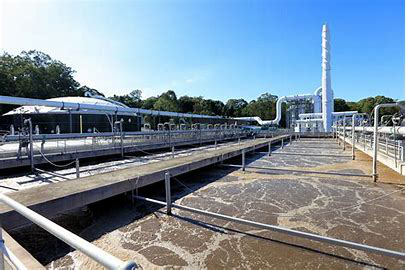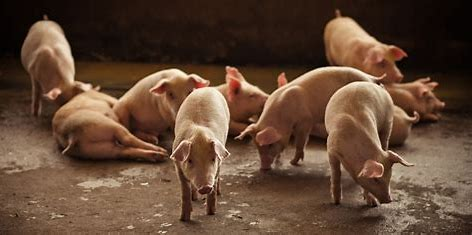
Release Date:2024.09.25
With the rapid development of the pig industry, the number of live pigs has increased significantly, resulting in large and concentrated excretion. If a large amount of pig manure is handled improperly, it will cause pollutant emissions, leading to environmental problems such as climate change, acidification, and eutrophication, and harm the environment. Therefore, some experts at the Leman China Swine Conference showed that improving the green total factor productivity of pig breeding is the basis to ensure the stable supply of pork, and also the key to the green transformation of the pig industry.
1 Source of environmental pollution
1.1 Fecal pollution
Fecal pollution is a major problem that needs to be solved in the process of pig breeding, but due to the cost consideration of some farms and the lack of environmental awareness, the importance of fecal pollution treatment has not been paid enough attention. At the same time, the excrement discharged from the farm will provide the necessary environment for the survival of viruses, bacteria and parasites, which will lead to the disease of pigs and harm human health, and ultimately bring huge economic losses to the farm.
1.2 Waste water pollution
At present, public concern about the environmental pollution caused by intensive pig farming is gradually increasing. Much of the focus has been on nitrogen (N) and phosphorus (P) pollution of surface and groundwater and heavy metal pollution of soil and plants, as pig manure is a significant source of N, P and heavy metals. Nitrogen and phosphorus are two major nutrients that contribute to eutrophication in lakes and streams, which can deteriorate water quality and affect the normal functioning of water bodies.
1.3 Air Pollution
Manure from farms, if not handled properly, will give off a bad smell and also produce a lot of greenhouse gases. Air pollution caused by pig production is mainly related to unpleasant odors caused by urine, sewage and animal metabolism. It contains a large amount of organic matter, which will produce harmful gases such as CO2 and CH4 in the air, which can warm the climate and cause acid rain.

2. Causes of aquaculture pollution
2.1 Farms lack environmental awareness
With the gradual strengthening of the implementation of ecological pollution policies, the problem of pollution control costs faced by pig breeding enterprises has gradually emerged. The current market of pollutant treatment equipment is expensive, which requires a certain amount of capital investment for farms. As a result, farmers still tend to adopt traditional farming and management models for the treatment of pollutants in the field.
2.2 Low level of manure resource utilization
Although China's pig industry is growing, intensification and scale are accelerating development. However, the farm has a low degree of utilization of fecal waste resources, and there is no combination of breeding and efficient utilization.
2.3 Unreasonable feed formula
In terms of feed formulation, breeding farms concept and professional technology personnel lack of scientific feeding, when feeding pigs, there is no clear pure raw material ratio, to feed costs and usage does not have a clear understanding in an all-round way.
3 Pollution prevention measures
(1) Scientific construction of enclosures
(2) Utilization of fecal waste resources
(3) Increasing policy support
(4) Strengthen professional and technical training

Summary
To sum up, pig breeding pollution is urgent for the prevention and control of environmental pollution. From government departments to farms, pig farm manure must be managed and utilized in a sustainable way, and the environmental impact of existing pig manure treatment and disposal routes should be comprehensively analyzed and treated. Relevant departments and farmers should strengthen supervision and support, reasonable site selection and construction, manure treatment, sewage treatment, waste resources and other aspects to alleviate the problem of pollutant discharge. Farms should be gradually transformed into ecological pig raising, advocating environmental protection, health, circulation and green. Ensure the sustainable development of ecological environment while ensuring the economic benefits of breeding farms.
If you would like to learn more about the pig farming industry, please visit the Leman China Swine Conference website for more information.
Source: SWINE INDUSTRY SCIENCE
If there is any infringement, please contact to delete.